Poland | ♀| A blog where I post my art and other projects. Mostly fan content.
Last active 4 hours ago
Don't wanna be here? Send us removal request.
Text

A new portrait of my Angel Knight Commander Vespera that took way too long to finish.
#pathfinder: wrath of the righteous#pathfinder#wrath of the righteous#wotr#pathfinder wotr#wotr commander#knight commander#angel kc#angel mythic path#pathfinder oc#crpg#dnd#oc#Vespera#my art
127 notes
·
View notes
Text

Daeran stands with one arm slung across his chest — he seems to be listening intently to something only he can hear.
Act 4 continues to be my favorite.
#pathfinder: wrath of the righteous#pathfinder wotr#pathfinder#pwotr#wotr#wrath of the righteous#owlcat games#daeran#daeran arendae#Дейран#my art#fanart
189 notes
·
View notes
Text
The Inconspicuous Writing Gem: Daeran’s Look-alike Contest Breakdown

The Dance of Masks brought the long-anticipated last hurrah to the Knight Commander’s story. Although it was announced that the DLC would focus on the companions, I wasn’t holding my breath for substantial content that would actually enrich the characters’ plots. The game is already massive and has a ton of variables, so expecting the writers to continue storylines that can have multiple outcomes would be unreasonable. But one scene far exceeded my expectations and set the bar high for the rest of the expansion, rendering me more critical about some of its elements than I would normally be. The event in question may not appear as much, but the true artistry in writing stories driven by the player’s choice fully reveals itself in what we don’t see on the surface. Daeran’s look-alike contest varies greatly, depending on how his personal quest was resolved, and, therefore, serves as a semi-epilogue to his arc. I wanted to post an analysis of his character’s progression for quite some time, and this send-off is a fitting opportunity to delve into this matter. I’ll break down the differences in the new scene as well as in a few others and share my overall thoughts on what this addition brings to the table. Brace yourself because it’s going to be long.
I'll start with a quick reminder of what Daeran’s questline outcomes are, because I'm going to reference them a lot:
Good, in which he’s openly grateful to the Knight Commander despite having to face the tribunal, and Liotr, noticing their bond, intervenes so the Inquisition doesn't lock him up;
Lobotomy, in which Daeran reluctantly accepts his predicament of having to face the trial, Liotr doesn't support him and after the crusade, the Count is sent to the asylum and lobotomized;
HappyEvil, in which the Commander kills Liotr to secure Daeran’s freedom;
ArchEvil, in which Daeran doesn't have any trust in the Commander, feels deserted and murders Liotr to avoid the trial.
At first glance, there's nothing profound about Daeran’s festival quest — it fits his image to indulge in the vain act of self-celebration by choosing the most accurate imitation of himself. However, this simple setup proves itself clever when we realize that, by observing the contestants, he sees himself in a distorting mirror. Coincidentally, each participant appears to represent a different facet of the Count’s character. Therefore, his reactions to them speak volumes of the self-image and mindset he developed during the crusade in each scenario.
Among the doubles, we have an aasimar who mimics Daeran's arrogance and cruelty, and constantly interrupts other participants' speeches with mocking remarks.
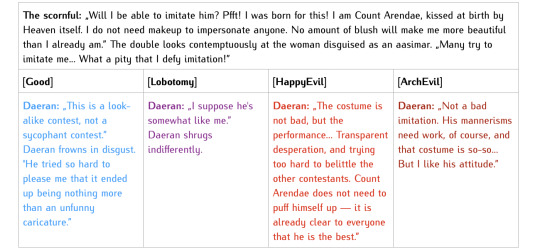
A woman who recreates Daeran's sophisticated bon vivant persona.

A drunkard who paints Daeran as a worthless and utterly unapologetic rake.

And finally, an innocent boy who keeps staring at Daeran with admiration and portrays him as a virtuous hero of the crusade.

After the presentation of the contestants is over, Daeran asks the Commander’s opinion. Again, his responses to their verdict vary in each case (unless they choose the cat), but the difference in how he reacts to being compared to the little boy is the most telling.
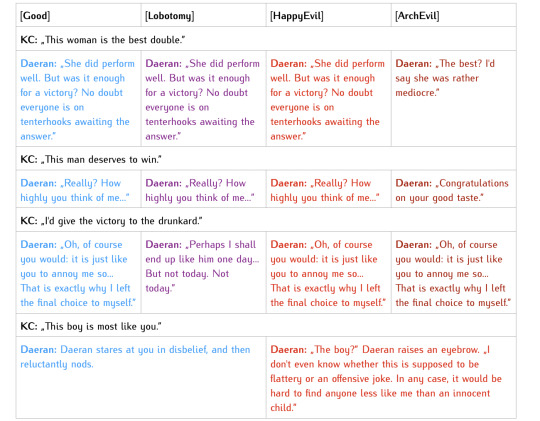
No matter what the protagonist suggests, the winner of the contest is fixed for each of the outcomes. If the Commander failed to earn Daeran's trust and he murdered Liotr himself, the conceited aasimar is declared the winner.

If the Commander killed Liotr, the Count awards the lady.

If the quest was resolved peacefully (either Good or Lobotomy), Daeran chooses the boy and has a heartwarming exchange with him.

This variety of possible scenarios and the way they are handled encapsulate why I consider Daeran's story so intricately woven and enjoyable to analyze. He's an incredibly flexible and dynamic character whose potential endings range from becoming a saint to a homicidal maniac. But what makes this duality and everything that comes in between so engaging is that all these vastly contradictory conclusions are equally organic and convincing, given his rich characterization and the player’s choices. The subtle yet significant divergences in the narrative paths maintain the integrity of his personality and prevent his evolution from seeming far-fetched while efficiently showcasing his growth or regression.
Regretfully, this attention to detail is missing from the other new scenes, which don't convey a similar sense of progression and can come off as somewhat disconnected from the rest of the playthrough. The rendezvous, for example, avoids references to how the player concluded Daeran's romance and quest. Given these plotlines' non-linearity, it's an understandable approach, but it prevents the scene from exploring deeper themes and hitting more emotional notes. What's particularly detrimental to the its overall intensity is the absence of exclusive dialogue for the True Love outcome. Ironically, it's the two worst endings that get unique and surprisingly heartfelt lines.
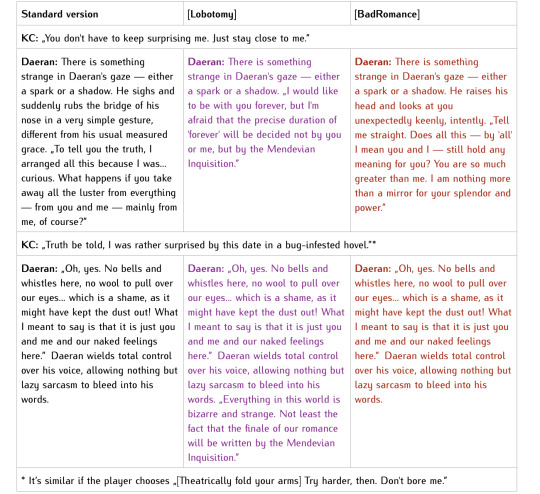
The difference is insignificant, however, because the conversation always plays out the same. All in all, the segment is nice and leaves a lot to the imagination, but only partially exploits its potential. Meanwhile, the festival mini-quest embraces the aforementioned strengths of the storyline's writing, giving every iteration of Daeran distinct dialogues that clearly demonstrate the impact the crusade and acquaintance with the Commander had on him.
I won't examine every dialogue branch in detail but will mainly focus on the Good scenario. As someone who likes this ending the best and even advocates the controversial writing in the final confrontation with Liotr, I always thought the narrative failed to properly sell its implied benefits. Apart from the closing conversation in the quest itself, late-game provides little reactivity to differentiate the outcomes, making it hard for the players to fully grasp the internal shift that Daeran undergoes. Comparison of said dialogue in various scenarios reveals his perspective in Good route as the least egocentric and overall most mature. Unfortunately, in an individual playthrough, these qualities can get overshadowed by the Count's dissatisfaction with the inconveniences he will eventually have to endure.

Aside from that, the effects of each resolution manifest only in Daeran's responses to one question in the romantic route and how he expressed his feelings regarding Galfrey’s death.
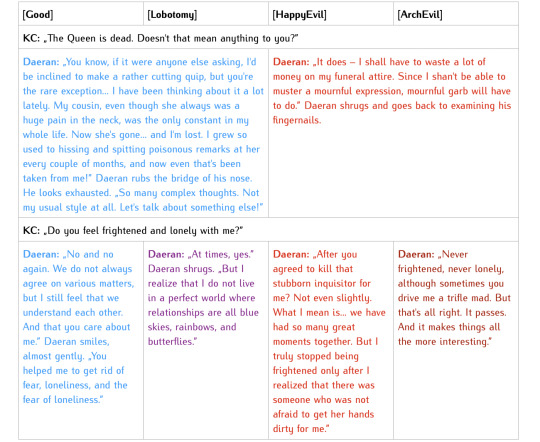
Even though they show evident contrast and serve as a much-needed emotional pay-off for the moral dilemma the player faced in the storyline finale, both are relatively minor, with the Queen one completely missable in most playthroughs. When combined with the similar omission of negative repercussions for Daeran’s moral condition and emotional maturity in other outcomes, it's not surprising many players believe he doesn’t ever change or that becoming better fundamentally clashes with his nature.
The discussed competition scene remedies the narrative’s deficiencies, ultimately proving this statement untrue. In the Good outcome, Daeran presents a reasonable dose of self-distance. When confronted with the drunk’s insults, he replies with humor and courtesy, which is a stark contrast to his reactions in the Evil outcomes and his past responses to criticism. Despite being hurt by the harsh judgment, he understands such a low opinion of himself is somewhat justified. The Count's mild response and his sensitivity to the suggestion that he's nothing more than an unfeeling scoundrel may even indicate that he has developed some remorse for his past actions. He also dismisses unwarranted flattery and distances himself from the brash egotism. All without falling into a spiral of gloom and self-deprecation that occurs in the Lobotomy scenario. Introspectiveness and vulnerability showcased here are a seamless continuation of the self-evaluation Daeran does in the High Trust version of his quest upon being supposedly betrayed by the Commander.
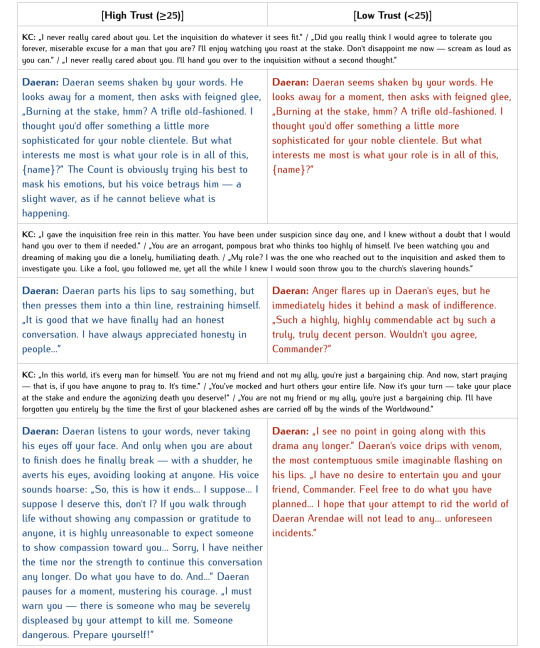
It's all the more unfortunate that the other interactions in the DLC don’t acknowledge these differences and instead return to the common denominator of all endings. As a result, the player will go from Daeran, who self-reflects and claims the aasimar presents an unfunny caricature of him, to Daeran in the tavern, who puffs himself up exactly like the guy (using even the same words) and seeks more sycophantic praise. While it's expected for him to put on an airy act and tease others, the absolute lack of self-awareness he previously exhibits in the Good route is quite jarring. Considering the complexity of the storyline as well as all sorts of limitations, such inconsistencies are inevitable (the base game already has a fair share of them) and in the end, one can easily reconcile them through their own interpretations. However, after being spoiled by a reactivity treat like the festival mini-quest, it's disappointing that the remaining dialogues lack similar nuance.
In the Good scenario, Daeran's behavior reinforces what we learn in the epilogue — that in this version, he has the most difficulty navigating through his newfound freedom and redefining himself in it. Choosing the winner of a silly contest shouldn't be hard for him, and it isn't in the Evil outcomes. There, the self-satisfied Count (who in both cases already has the blood of at least one innocent man on his hands) picks what he perceives as an idealized version of himself — be it the aestheticized depiction of his self-centredness or the unbridled and unyielding haughtiness. Noteworthily, in the Happy variant, Daeran openly flirts with the lady and, in both Evil paths, if not romanced, attempts to seduce his favored contestant. It’s peak narcissism, given the implications of the scene. In the peaceful outcomes, especially the Good one, the ordeal is a series of unpleasant self-reflections that even causes him to become overwhelmed by sorrow at one point. In the end, Daeran’s choice stems not from an ulterior motive or a desire to boost his ego but from genuine fondness for the boy. The youngster's belief in the Count’s kindness and heroism reminds him of his own innocence that was prematurely and brutally snatched from him. At his core, Daeran is not a self-sufficient master of his own fate but a helpless child thrown by unfortunate circumstances into otherworldly oppression and a vicious cycle of selfishness. In the Evil routes, he successfully deludes himself into believing he’s the former, but here, he realizes he’s the latter.
We're used to seeing Daeran scoffing at saccharine narratives and lofty ideals, and in the Evil versions, he's indeed annoyed with the boy’s portrayal of him. In one of them, he even anticipates him to be disenchanted, finding the prospect amusing. In the campaign's early stages, the Count voices his dissatisfaction with being enrolled in the crusade and laments the tarnishing of his ill reputation. Any suggestions that he may be secretly vulnerable are met with biting retorts. But now, Daeran doesn't disabuse the child and isn’t even bothered by being seen as a heroic figure. There also isn’t any objection when the Commander points out the similarity between him and the boy. He’s shocked they can see through him but decides to be honest and agrees with their assessment. Daeran’s sensitivity and his tendency to be more emotionally transparent with the protagonist is, at this point, a recurring theme in the peaceful outcomes, so it’s a shame that when they later choose to compliment his vulnerable soul, he's always equally dismissive.
Daeran is perfectly aware of how damaging cruel disillusionment can be to one’s psyche. As a child, he witnessed firsthand the powerlessness of good in the face of evil, the suffering adhering to moral principles can bring, and how those who claim to be righteous can turn out to be as callous and uncaring as hardened villains. These experiences left the young Count with a pessimistic view of the world and human nature, making him adopt coping mechanisms that only deepened his melancholy and loneliness. Knowing this, he wishes to spare the boy a similar fate and plays along to preserve his innocence.
In the non-peaceful outcomes, Daeran gives the signet away as if it was an insignificant bauble. But even though we barely ever see this side of him, some dialogues indicate he’s proud of his heritage and his ancestors' role in Mendev’s history. They were valiant defenders of the kingdom, who, for generations, protected its borders from any threat. This is who the Count, as a scion of the Arendae house, was originally destined to be and who, it so happens, the boy sees in him. Perhaps his take on him makes Daeran reflect on how differently things could have turned out had it not been for his family's demise and the Other’s interference. It undoubtedly revokes memories of his roots and deceased kin, since he not only rewards the child with the ring but also educates him on its meaning and sentimental value, expressing unexpected sincerity and kindness. In the Lobotomy scenario, this gesture is particularly bittersweet — with his impeding childless death, Daeran’s lineage is going to expire, making the memento the only way to keep its memory alive.
Finally, the Good version of the scene carries a deep symbolic significance. Daeran rewards one person who doesn't focus on his superficial traits or recreates the mask he hides behind. The image the boy paints of him may not be accurate, but while the other portrayals embody what the Count turned into under the Other's influence, this one shows what he could have been if he hadn’t lost the childish naivety he now longs for. And who he, despite his own skepticism, still can or perhaps even already started to become, thanks to the good protagonist's compassion and support. Just like the Commander, the boy views him as someone better than what his predicament forced him to be. And Daeran, confronted with sincere faith in him, cannot help but answer the call.
#pathfinder: wrath of the righteous#pathfinder wotr#pwotr#wotr#wrath of the righteous#owlcat games#daeran arendae#daeran#Дейран#my analysis
298 notes
·
View notes
Text
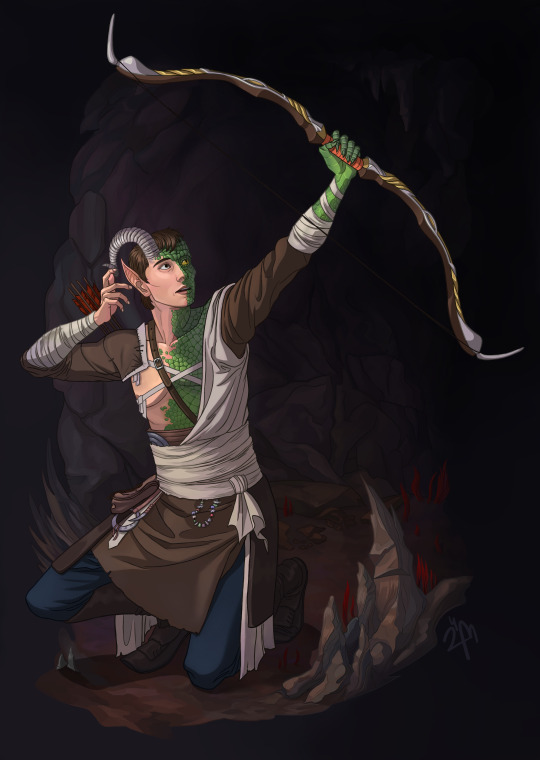
"Well, it didn't go... well."
Thanks anyway, Lann. You're one deadly cave potato.
#pathfinder: wrath of the righteous#pathfinder wotr#pathfinder#pwotr#wotr#wrath of the righteous#owlcat games#lann#lann neath#Ланн#my art#fanart
305 notes
·
View notes
Text
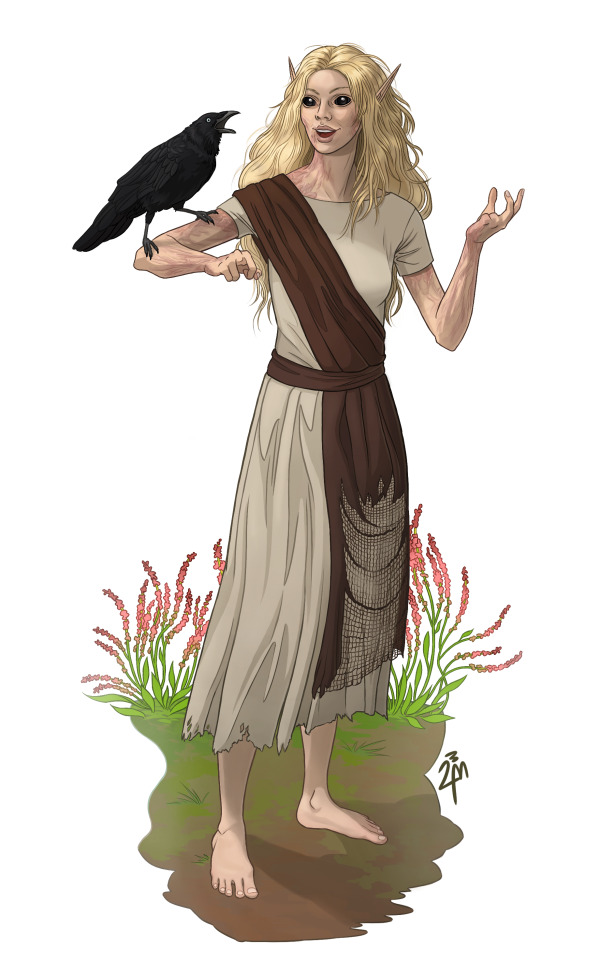
Ember talking with Soot. Maybe they are discussing whether or not it is right to make evildoers face their punishment, or maybe Soot is simply getting reprimanded for sneaking food. We may never know.
#pathfinder: wrath of the righteous#pathfinder wotr#pathfinder#pwotr#wotr#wrath of the righteous#ember#soot#Уголёк#my art#fanart
183 notes
·
View notes
Text
Wrath of the Righteous features a roster of splendidly written and enjoyable companions, but the majority of their interactions are, sadly, easily missable on individual playthroughs. A collection of camping banter made by the amazing @neverwintrians remedies this issue to some extent by making some of the dialogues easily accessible for all the players. Since the characters’ input goes much further, a good while ago, I started a project to record all their comments and interjections. The idea was to copy-paste them from the localization file into a convenient spreadsheet. Since a new wave of players pick Pathfinder games after playing Baldur’s Gate 3, and we have more DLCs on the way to reignite the interest of the old fans, I figured it’s about time for me to share the results so far. Whether you want to use it for all sorts of analyses, as an inspiration or a reference for fan content, are simply curious, or want to get a few laughs: here you go.
Now, a few notes to keep in mind.
The data is still incomplete. My current playthrough goes very leisurely, and I only finished Act 3 recently. Almost everything past this point, save for some crucial parts of the story I revisited, comes from the run during which I wasn’t yet using Toy Box. I intend to continue slowly patching the holes as I go on, but please take what you see in the later chapters with a grain of salt for now (and don't expect to see Ulbrig's lines there).
Having that said, the branching, especially in later acts, gets crazy, so naturally, I wasn’t and won’t be able to find every last bit of dialogue on my own. What you see is based on my Angel playthrough, in which I haven’t even activated most of the romances. I managed to cheat my way into some interactions that normally would be unavailable to me, but the results were mostly confusing. Cells highlighted in yellow contain dialogues that I found via game files but either have some of the information missing, or I simply wasn’t able to trigger them while playing. There are also red cells that include lines that, to my knowledge, might not have been implemented since I found them in localization files, but the blueprints folder doesn’t confirm their presence in the game.
So here’s where I have a request for you all. If anyone can help me fill in the already existing blanks or spots a dialogue is missing and can provide a screenshot or a transcript of it, please contact me. I will add it to the document and credit you. All I need to know is when and where the conversation occurs, what/who the companions are reacting to, and if there are any specific requirements to see it.
The areas of special interest are:
mythic path exclusive interactions,
romance exclusive lines (especially in Acts 4 and 5),
Greybor’s, Arueshalae’s, and Lich companions’ lines during the celebration in Heaven’s Edge
late game dialogues for corrupted Arueshalae
I also want to thank GardathWhiterock from Pathfinder reddit, who advised me to look into the blueprints folder. Once I figured out how to work with it, filling up the majority of the blanks became super easy.
I will most likely edit this post in the future to note some important updates and milestones. For now, I just hope you guys will find anything of interest in what I have gathered.
#pathfinder#pathfinder wotr#pathfinder: wrath of the righteous#wrath of the righteous#wotr#pwotr#owlcat games#owlcat#companions#crpg#aivu#arueshalae#camellia#daeran arendae#ember#finnean dismar#greybor#lann#nenio#queen galfrey#regill derenge#woljif jefto#seelah#sosiel vaenic#ulbrig#wenduag#trever vaenic
409 notes
·
View notes
Text
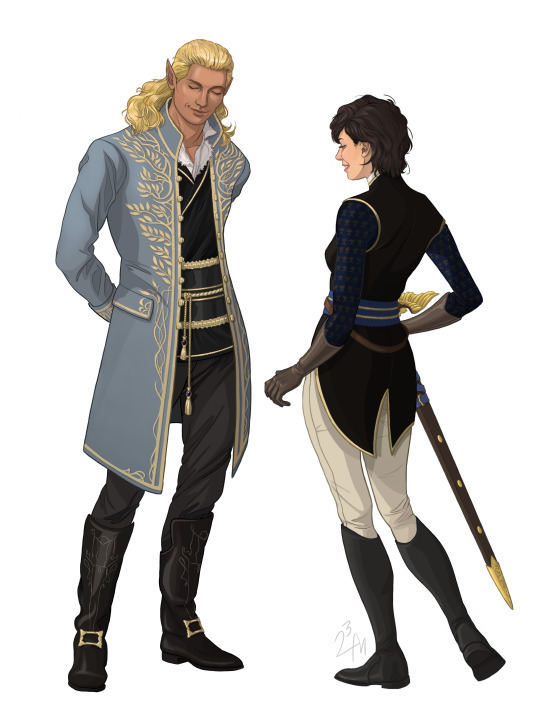
My priggish Commander Vespera chatting with the infamous Count soon after the siege of Drezen, fully recognizing his oblique speech strategies by now and getting amused by his unsuccessful verbal manoeuvering.
Super late to the party with the fanarts, but I still wanted to finish it since this questline was one of the biggest highlights of my Angel playthrough. I will never run out of praise for how well-crafted character Daeran is and how much his story nails my absolutely favorite tropes and themes.
#pathfinder: wrath of the righteous#pathfinder#wrath of the righteous#pathfinder wotr#wotr#pwotr#daeran arendae#daeran#wotr commander#knight commander#angel kc#pathfinder oc#oc#my art
194 notes
·
View notes
Text

On September 13th, 40 years ago, the first chapter of Fist of the North Star was published in Weekly Shōnen Jump. To celebrate this occasion, I decided to redraw a fanart of Kenshiro I made several years ago.
#fist of the north star#fotns#hokuto no ken#hnk#北斗の拳#ken il guerriero#ken le survivant#kenshiro#40th anniversary#manga#anime#fanart#redraw#my art
17 notes
·
View notes
Text


After dedicating bajillion hours to WotR, I finally decided to draw my Angel Knight Commander — Vespera, an aasimar paladin of Sarenrae.
I usually don’t get attached to the characters I create for cRPGs. Still, this game is super long and does a fantastic job prompting the player to get invested in their mythic hero’s story and to establish their personality. So hey, here goes nothing.
#pathfinder: wrath of the righteous#pathfinder#wrath of the righteous#wotr#pathfinder wotr#wotr commander#knight commander#angel kc#angel mythic path#pathfinder oc#crpg#dnd#oc#my art#i am a basic radiance enjoyer
98 notes
·
View notes
